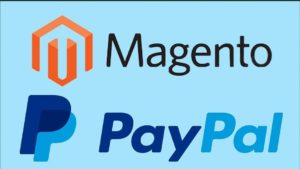App Development: Types, Programming Languages, and Costs
Introduction to App Development
App development is a crucial aspect of the digital world. Businesses invest in mobile applications to increase their reach and provide a better experience for users. In this blog post, we will explore the different types of apps, the commonly used programming languages, and the anticipated costs of app development.
Types of Apps
Native Apps
Native apps are developed specifically for a platform, such as iOS or Android. They offer the best performance and user experience as they fully utilize native APIs and device features.
- Advantages:
- High performance
- Better user experience
- Access to all device features
- Disadvantages:
- Higher development costs
- Longer development time
Web Apps
Web apps are responsive websites that look and function like apps on mobile devices. They are platform-independent and do not require installation from an app store.
- Advantages:
- Platform-independent
- Lower development costs
- Easy to update
- Disadvantages:
- Limited access to device features
- Dependence on internet connection
Hybrid Apps
Hybrid apps combine elements of web apps and native apps. They are developed using web technologies such as HTML, CSS, and JavaScript and then wrapped in a native app shell.
- Advantages:
- Cross-platform
- Fast development
- Lower costs compared to native apps
- Disadvantages:
- Performance may lag behind native apps
- Limited access to some device features
Programming Languages for App Development
Programming Languages for Native Apps
- Swift (iOS): Swift is the preferred language for developing iOS apps. It offers high performance and security.
- Kotlin (Android): Kotlin is Google’s recommended language for Android development and offers modern syntax and interoperability with Java.
H3: Programming Languages for Web Apps
- HTML5: Standard for structuring and presenting content on the web.
- CSS: Used for styling web pages.
- JavaScript: Enables interactive and dynamic content.
H3: Programming Languages for Hybrid Apps
- JavaScript (with frameworks like React Native or Ionic): These frameworks allow for the development of cross-platform apps with native performance.
Costs of App Development
The costs of app development vary greatly depending on the type of app, functionality, and complexity. Here are some estimates:
H3: Native Apps
- Simple App: 20,000 – 40,000 EUR
- Medium Complexity App: 40,000 – 80,000 EUR
- Complex App: 80,000 – 150,000 EUR and more
Web Apps
- Simple Web App: 10,000 – 20,000 EUR
- Complex Web App: 20,000 – 50,000 EUR
Hybrid Apps
- Simple Hybrid App: 15,000 – 30,000 EUR
- Medium Complexity Hybrid App: 30,000 – 60,000 EUR
- Complex Hybrid App: 60,000 – 100,000 EUR and more
Conclusion
Choosing the right type of app and the appropriate programming language depends on your specific requirements and budget. Native apps offer the best user experience and performance, while web and hybrid apps are more cost-effective and quicker to develop. Investing in the right app strategy can lead to better long-term results and higher user satisfaction.




